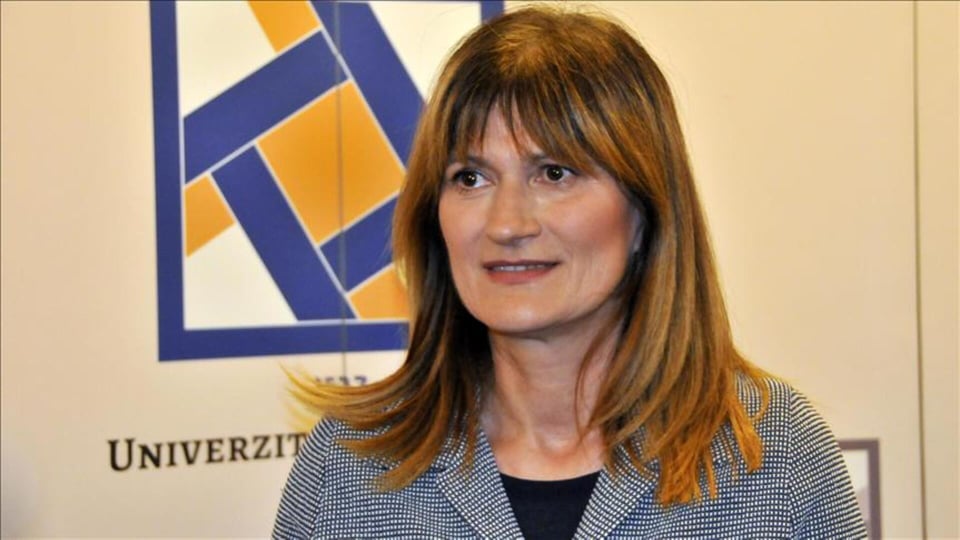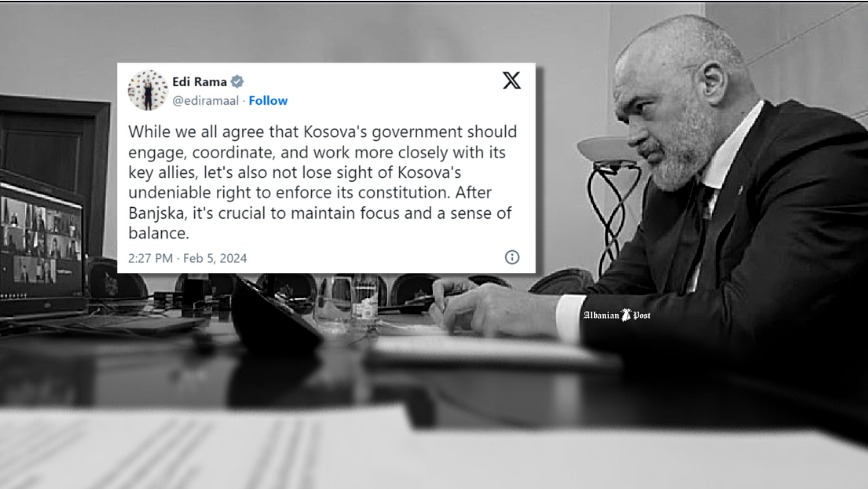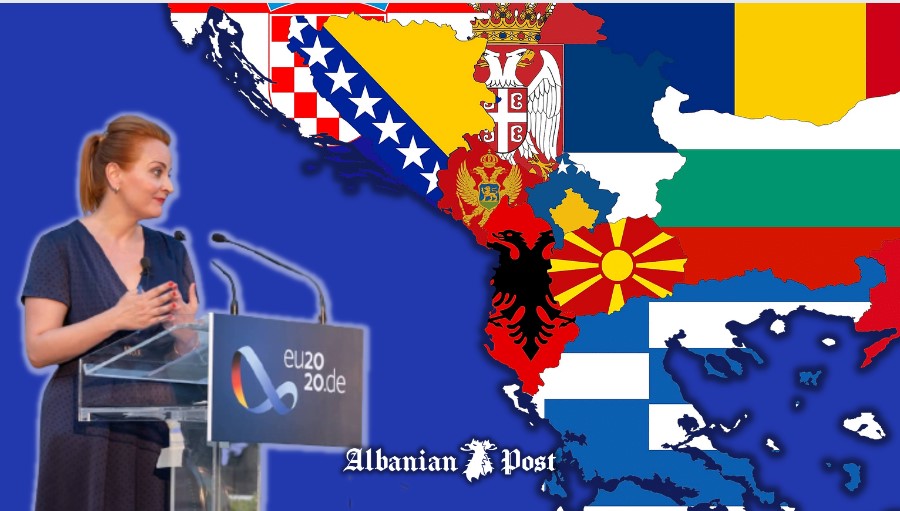
Balkan affairs expert, lecturer at the University of Amsterdam, and author of the book “The Unfinished Trial of Slobodan Milosevic”, Nevenka Tromp, in an interview with Albanian Post, comments on the latest developments in relations between Kosovo and Serbia, and expresses her point of view in retrospect.
From the situation created recently from not allowing the Serbian elections, to the strained relations of Kosovo with the QUINT states, Tromp gives her insights on the matter, and lays out a few of her own views on the situation.

You can read Tromp’s interview for Albanian Post below:
Albanian Post: Kosovo has refused to come to terms with the QUINT-s proposal on allowing the upcoming Serbian elections within the territory of Kosovo, concerning which it has also received strong criticism by the Western world. How have you seen Kosovo’s Prime Minister’s strong insistence on this matter, and does it do good itself, or “undermines” its position, as was said in a joint statement by the QUINT countries?
Nevenka Tromp: So far Prime Minister of Kosovo Albin Kurti has failed to justify the Kosovo government’s decision to refuse to facilitate the vote of the Serbs living in Kosovo who are eligible and willing to vote in the upcoming general elections in the neighboring Serbia scheduled for 03 April. The national and international audience should know what motivated this decision and with which political motives in mind. What the domestic audience needs to know are the arguments upon which the government reached this decision as this move can impact the internal and regional stability and security of Kosovo and its citizens.
So far, the arguments that favour the vote of the Kosovo Serbs have been prevailing: regardless of the possibly perfidious motives of the Belgrade regime, the Serbs in Kosovo should be enjoying all political and civil rights at individual and collective level. Their vote in the Serbian general elections cannot possibly change anything in the status of Kosovo and its prospects to become a fully recognized state and thus a UN member in foreseeable future. Internationally, Kosovo’s government has engaged in a risky testing – of the otherwise strong commitment – of the US and the UK ’s in supporting its independence in the rapidly changing geopolitical balance of powers in the east and southeast of Europe.
Finally, in bilateral and regional politics, Kosovo is giving arguments to the Belgrade regime that still prefers the partition of Kosovo above the international recognition of Kosovo in its current borders. Namely, Belgrade will use this as a proof for its argument that the Prishtina government is not interested in the political and civic rights of its Serb citizens.
Albanian Post: Special Envoy to the Western Balkans, Mr. Stuart Peach, in an an interview given recently to a Montenegrin newspaper “Vijesti” concerning Kosovo’s refusal to find a solution on the Serbian Elections said that “[…] not taking the opportunity to reach a practical solution offered in this case calls into question Kosovo’s commitment to the fundamental values if inclusiveness and democratic rights for all citizens”. What is your assessment of Mr. Peach’s comment?
Nevenka Tromp: The issue of minority and majority rights – individual and collective of citizens of a state must be of major concern of every government. This is a relatively minor issue and Mr. Kurti should not allow this issue to take over and obscure a huge work that has been dine on this issue since 2008 onwards. Moreover, this government should not dismiss the practices on this issue that were established during the Hashim Thaçi’s tenure as Prime Minister.
In 2012, the then Kosovo government agreed on the modalities how to facilitate the vote of the Serb citizens. Discontinuity of the good practices established previously should at least be legally and politically justified. So far Mr. Kurti and his government have not been able to provide persuasive arguments for breaking with the previous practices. If they acted purely because they had power to do so is not a good sign for the reputation of Kosovo domestically, regionally, and internationally.
Albanian Post: Prime Minister of Kosovo recently visited Norway, where he met the Norwegian Prime Minister, who also expressed the same “disappointment” towards Kosovo, and Mr. Kurti not only hid it, but one of his main political advisors denied that such a “disappointment” was expressed, which can consequently be interpreted as a “refutation” of that which the Norwegian Prime Minister published on his official website. What does this hiding of the negative feedback received abroad mean for Kosovo?
Nevenka Tromp: If this is true, that it seems to me that Mr. Kurti’s government suffers from “ostrich politics” syndrome. That means that whenever they do not want to see and acknowledge the realities, they bury their heads in the sand waiting if they can get away with it. I am afraid that Serbia’s government will not let it pass unnoticed and that Belgrade will use this issue to undermine in the international context the progress of Kosovo on its further as an internationally recognized state. We all know that Belgrade is making inventory of all such issues in order to justify its effort to create support among the internationals for partition of Kosovo, i.e., to change the border by annexing the north of Kosovo.
Albanian Post: Mr. Kurti is broadly perceived within the country as someone who has restored political dignity to Kosovo in relation to Serbia, as he builds his political persona with harsh criticism towards previous governments that they were making innumerable concessions to Serbia, of which he promised he would put a stop to as soon as he comes to power. Now he has, and now he’s become the hard-liner that enjoys massive support. What does this mean for Kosovo in the times that are to come, when compromise will be required in order for anything to be achieved in relation to Serbia.
Nevenka Tromp: Mr. Kurti’s election victory was lauded as a needed change of political leadership of Kosovo. He started his tenure with a huge approval, especially among the young Kosovars. The balance of his government’s achievements still must be assessed. Kosovo does not need an able and well-intentioned politician at is helm. It needs a statesman. A true statesman is – and should be able – to distinguish tactical from strategic goals of the state.
When Hashim Thaci was doing “concessions” to Serbia, he might have been more of a statesman than a politician tactician. Maybe what seemed to be “too much concessions to Serbia” was a wisdom of a statesman. Maybe it is so that Hashim Thaçi understood that whatever future of Kosovo as state may hold, it cannot be achieved without a robust support of the international community, in particular of those states who led the military intervention in 1999 that was the foundational step to the direction of Kosovo’s independence in 2008.
Let’s face the reality once more. Kosovo is a classic example of a de facto state, because it lacks a full capacity to engage in international relations due to the fact that many states did not recognise it as an independent state. The literature and practice of de facto states show us that a de facto state cannot survive without a patron state of states. In the case of Kosovo, it is a ad hoc combination of states known as QUINT. If Mr. Kurti wants to act as if Kosovo can survive without the support of its patron states, then he should think twice.
Also, Mr. Kurti and his government cannot and should not distance themselves from the indictees that have been indicted by the Kosovo Specialist Chambers. Kurti as a politician might see it as an easy way to rid himself form the powerful political opposition. Kurti as a statesman should do everything to provide support and infrastructures for their defence. Any conviction of this court has protentional to criminalise the Kosovo liberation war fought firm 1998 to 1999.
Kurti as a statesman should be aware that a statesman in him should pick their strategic battles, which are long term ones and will be fought on after he retires from politics. Although, it is still too early to judge his government’s tenure, I truly hope that we shall see more of Kurti statesman in the future.
This will involve the change of tactics: adopting a consensus politics when engaging with its Kosovo’s Serb population without calculations what and how Serbia can use or abuse it; demonstrating Kosovo’s full commitment to cooperation with QUINT, i.e. friendly states and supporters of Kosovo as independent state; adopting the politics of continuity rather than discontinuity with the previous government of the coalition parties, stressing the need of national unity; unequivocally supporting the commitment to justice and providing all assistance needed and possible to the Kosovo Specialist Chamber’s – the Prosecution and Defence.
Last from the rubric
-

How can someone ask for more?
-

“Decision on Dinar – unfortunate and unnecessarily provocative”, interview of Albanian Post with Jonathan Moore
-

Albin Kurti’s eight fundamental problems
-

“History will record that the KLA and the United States were partners in preventing a genocide,” exclusive interview with James Rubin






